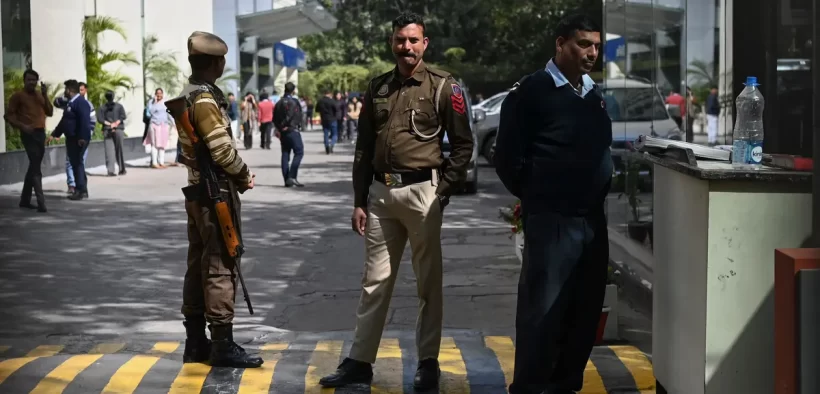The series was not released in India but prompted an outcry from the Modi government, who accused the broadcaster of bias and a “colonial mindset”, pointing out that Modi was cleared of all charges by a supreme court panel in 2012.
Emergency laws were invoked to ban any links or clips of the documentary being shared on social media. In defiance of the ban, students across the country staged screenings of the documentary at universities and several were detained by police.
The BBC has stood by the documentary, stating it was “rigorously researched according to highest editorial standards”.
Following the searches, Gaurav Bhatia, a spokesperson from Modi’s ruling Bharatiya Janata party (BJP), described the BBC as the “most corrupt organisation in the world” and accused it of “venomous, shallow and agenda-driven reporting”.
“If any company or organisation is working in India, they have to comply with the Indian law. Why are you scared if you are adhering to the law? The [tax] department should be allowed to do their work,” said Bhatia.
The raids of the BBC were widely criticised by members of the opposition. “At the time India holds the presidency of the G20 nations, prime minister Modi continues to brazenly show India’s slide into authoritarianism and dictatorship,” tweeted the Congress MP Gaurav Gogoi.
Akhilesh Yadav, the leader of the Samajwadi party, said: “When a government stands for fear and oppression instead of fearlessness, then one should realise the end is near.”
The BBC has been under increased scrutiny since the furore over the documentary, including a petition to the supreme court to have the BBC banned in India, which was dismissed by the judges.
There has been an increasingly pressured environment for the media since Modi came to power in 2014. Journalists and news organisations that have published work critical of the BJP government have faced harassment, raids, criminal cases and tax investigations, and India has dropped to 150 out of 180 in the World Press Freedom Index.
The BBC is just the latest organisation to be hit with a tax evasion investigation following reports that have reflected poorly on the Modi government. Tax raids have been carried out on Oxfam and several thinktanks, while Amnesty International, which had documented the erosion of human rights and persecution of minorities, had to shutter its India operations in 2020 after its accounts were frozen by a central government agency.
Amnesty called the raid on the BBC “a blatant affront” to freedom of expression. “The Indian authorities are clearly trying to harass and intimidate the BBC over its critical coverage of the ruling Bharatiya Janata party,” said Aakar Patel, the chair of Amnesty International India’s board.
The Guardian












